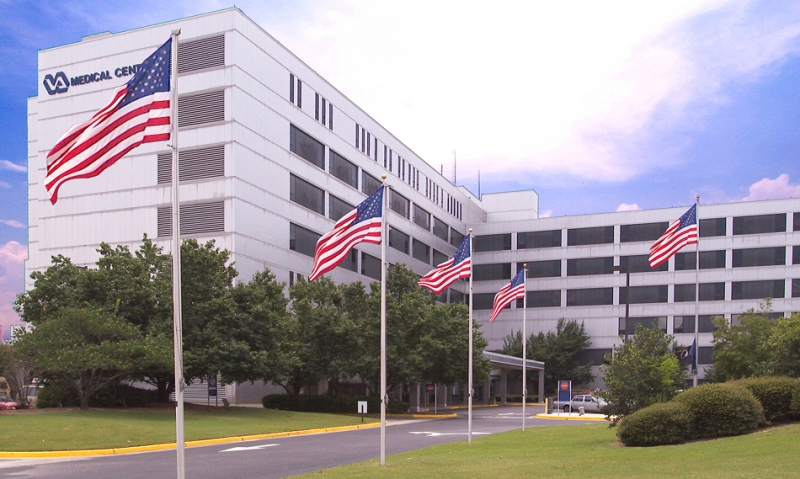
While the backlog was defeated, the hospital still faces challenges in recruiting enough nurses and physicians.
At the Charlie Norwood VA Medical Center in Augusta, Ga., the backlog of patients waiting for gastro-intestinal (GI) screening once exceeded 4,500, according to an investigation last year by the House Committee on Veterans’ Affairs.
In November 2012, officials at the Norwood center confirmed that three of its patients had died from cancer because of long waits and delayed care in the hospital’s GI program. Since then, leadership at the Norwood center has taken effective action and reduced the GI backlog to zero. Robert Hamilton, the medical center’s director, discussed the turnaround with members of The American Legion’s System Worth Saving (SWS) Task Force during their visit to the facility in early March.
Hamilton said the Augusta facility initially attacked the backlog with a new task force and a database created to track the problem. More staff was hired: nursing staff for the GI program went from five to eight and GI technicians went from three to five. The consulting process was streamlined and the hospital’s endoscopy suite was redesigned to make it more efficient.
“By mid-November 2012, we were able to basically state that we had handled the problem,” Hamilton told the Legion's SWS team.
Michael Spencer, who became the Norwood center’s chief of staff last November, said that recruitment is a “real problem” for hospital’s GI program. “Surgeons definitely helped out with weekend and holiday clinics” to eliminate the screening backlog. Work hours were expanded at the local VA clinic and fee-based services in the area.
A new chief of GI services has been selected, Spencer said, and should come on board at the Augusta facility within a month or two. More fee-based doctors have been added and the Norwood center now has the capacity to do 375 GI screenings per month, according to Robert Collier, the facility’s chief of medicine.
Hamilton said the Augusta facility first identified the magnitude of the GI backlog problem in late September 2012, “and we started to ramp up.” The hospital’s capacity for GI procedures increased to 20 per day and “ultimately, we were able to do 45 to 50 per day," he said. All the GI cases “were dealt with and properly dispositioned.”
Spencer said there is no tolerance for delays in GI procedures anymore. “It is crystal clear that GI work will be done immediately.”
One major challenge the Norwood center continues to face, which affects not only its GI program but its staffing levels in general, is recruiting. Hamilton said the hospital has lost several nurse and physician candidates because of pay issues. “We are certainly behind in the pay market," he said. "VA is only as good as the people it can retain.”
The medical center’s personnel director, Roger Buterbaugh, said it is difficult to recruit nurses into the GI program and that 50 percent of its nursing staff are at retirement age. He said the Augusta facility currently has about 100 vacancies in its nursing force.
SWS Task Force member Daniel Seehafer said he has also heard about recruiting problems at VA medical centers in Kansas City, Mo., and Nashville, Tenn. “The problem that VA has in recruiting and retaining medical staff is a recurring theme in our SWS visits. The salary freeze on federal employees is having a negative impact on VA’s ability to deliver health care to our veterans.”
Problems with nurse recruitment “does keep me up at night,” Hamilton said. “As we look at the numbers, they’re just not where we want them to be.” He is also noticing some recruitment challenges for physicians because of salary guidelines issued by the Office of Personnel Management.
Challenges in recruiting GI physicians, Collier said, along with so many “baby boomers” getting older, contributed to the hospital’s backlog problem. He said it is difficult for VA to keep up with more competitive salaries among private practitioners.
Hamilton said The American Legion may want to examine the issue of how competitive VA salaries for medical staff are with the private sector. “The Legion has been a great partner for us," Hamilton said. "We look forward to a continued partnership.”
- Veterans Healthcare

